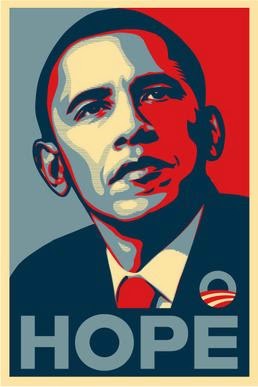Jamaica is still basking in the after-glow of extra-ordinary performances of our athletes at the recently held World Championships. “How can we as a nation benefit from the success of our athletes?” is probably one of the most asked questions around town. “How can we leverage Brand Jamaica?” they ask.
 |
| Courtesy Jamaica Olympics |
I practically fell off my couch (along with the rest of Jamaica I am sure) as I saw Usain Bolt stumble in his 100m semi-final race. I had tweeted just minutes before the race that it is impossible to correct any error over 100m, in ten seconds or less. Usain proved me wrong. He corrected his error, won that race and did it in under 10 seconds. Two hours later he went on to win the final race. That victory is attributable to more than physical ability. Usain Bolt demonstrated that he had what we refer to in Jamaica as a “Lion Heart”.
Novlene Williams-Mills, a track veteran over 400m and cancer survivor (VICTOR!), ran the leg of lifetime to inspire the world and set a new meet record. When you understand what cancer and its treatment does to your body, you realise that Novlene too opened up her “Lion Heart” and got the job done.
Much has been made about the sacrifices, financial and otherwise of Jamaica’s track athletes. A nation along with the rest of the world has watched with bated breath, hearts full of hope, lungs bursting along with the athletes as they have over and over again exploded across the finish line, sometimes against all odds.
By their own admission, many of our champions have attributed their success to the fact that they are Jamaican. They have cited their desire to make Jamaica proud and have spoken about their strong desire for victory and their relentless pursuit of it as an extension of them being Jamaican. Somehow, it seems, there is something about this Jamaican-ness that allows the Jamaican track athlete to pursue, with confidence, the top prize. It goes beyond the system that has at its core the ISSA Boys and Girls Athletics Championships that acts as an incubator and forces track talent to bubble to the top year after year. Adults and school children are witnesses to the immense raw talent that exists in our secondary schools. The champions of tomorrow are spotted here and opportunities overseas and indeed right here on the Rock ensure that transition from potential to actuality.
But Jamaica’s prowess on the track transcends any system. We, along with the rest of the world, believe that Jamaica is the sprint capital of the world. We see ourselves as sprinters and continue to dominate over the shorter distances. Our sprinters are our champions. We tell them they are. They know it. We position ourselves as champions of the sprints and plan, allocate resources and execute on our plans to dominate accordingly.
So we too watch in awe as our sprinters dominate and show to all in attendance that “Lion-Heart” that distinguishes the champions from the others that merely run fast. I sit on the edge of my bed and marvel at that “warrior-spirit” that forces the Jamaican athlete to decisively compartmentalise injury and unfortunate lane draws and focus with amazing single mindedness and clarity on The Goal: “mi ah go just run yah, Man!”
And as I marvel at this manifestation of the Lion-Heart and warrior spirit of our sprint champions, I have one question. My question is not “how can we leverage the success of our athletes to the benefit of Jamaica?” My one simple question is this: “How can we leverage the spirit of the Jamaican athletes and demand and obtain effective governance in Jamaica?”
Why is this “Lion-Heart” and this warrior spirit seemingly confined to the track, meanwhile back at home, the same Jamaica that produced giants on the track continues to wallow and indeed spiral downwards in a cesspool of crime, zero economic growth, poverty and political corruption? In the eternal words of Burning Spear, I recall some great men, and I think about our sons and daughters who have left our shores for foreign lands and in doing so have excelled and done well, and I once again wonder about our stagnation and even decline as an independent nation and I wonder how come.
I want to know how we can translate this “Lion-Heart” and warrior spirit to Jamaica Land we Love and conquer the world. Individual triumphs are to be admired and celebrated. But there is no reason why Jamaica should not likewise triumph. Short term fame for Jamaica because of the exploits of Jamaican track stars and any attendant economic spill-offs are not my quest. I want to see the spirit of the track champion rise up in each and every Jamaican and manifest in the form of complete dissatisfaction as to where we are as a country, and see us striving towards and demanding effective governance. Sometimes I wonder if our greatest strength as a people, our resilience in the face of hardship, is perhaps our greatest weakness too. Our ability to survive perhaps allows us to accept mediocrity in our leadership and governance norms, and ends up perpetuating a context where we do not demand more from our leaders.
 |
| Courtesy The Jamaica Gleaner |
I am not relinquishing the role of the individual in changing the paradigm. I am not down playing the role of the individual and passing the blame on to Leadership. Not at all. But in national development, there really is no substitute for national vision and policy, and sound, effective governance that eschews corruption and has the good of the nation in the forefront of all its decisions and actions. So why do we, 53 years after independence from Britain, continue to accept the status quo of political corruption which is at the root of all that is wrong with Jamaica? Where is this “Lion-Heart” and this warrior spirit that has birthed champions on the track and yet seems to elude us as a collective? We choose to distance ourselves from the democratic processes and the few that have made the connection between effective governance and national well-being continue to toggle between orange and green hoping for better.
Governance has everything to do with a decision making process that supports a national vision. What do we want Jamaica to look like? How do we envision our lives and the lives of our families in a Jamaica that is prosperous and safe and where everyone has the same opportunity to make good on his or her personal dreams? And what of the quality and types of decisions that national leaders make in furtherance of this vision?
Good governance, effective governance looks like this: it is accountable, it is transparent, it follows the rule of law, it is responsive and it is equitable and inclusive.
Check it: effective governance puts in place structures and systems that make it difficult for political corruption to flourish. And having instituted these structures and systems, effective governance ensures that they are not handicapped, that their role is respected and that they are allowed to work. Effective governance ensures that limited resources are allocated in order to get the best return on investment in support of the national vision. So under effective governance, elementary education is never short-changed for example. Under effective governance, justice looks the same no matter how you speak or how you look or where in Jamaica you come from. Under effective governance, health care is properly resourced and administered. Under effective governance, security forces really do protect, serve and reassure.
Imagine a Jamaica where decision making is not based on box-ticking and appearances. Imagine a Jamaica where national contracts are not formed with personal enrichment on the part of the public administrator/leader as part of the decision making matrix.
Under effective governance Jamaica would not have to waste time seeking to exploit the success a few on the track, because a sound national vision and operating plan and engine would already be at work, ever moving towards national greatness and prosperity.
That we are already a nation of lion hearts possessed of a warrior spirit has been demonstrated. Now we need to wake up and channel our natural propensity for victory into demanding more and not settling for what has been dished out to us.




